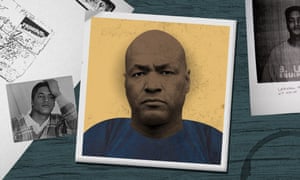Underoath They Re Only Chasing Safety Special Edition Torrent
Many of you have heard of. In short, copyright holders will sue a group of people sharing their work on bittorrent. Often the lawsuits involve pornographic movies. Many of these lawsuits also involve large amounts of defendants, e.g., Media Company v. Does 1-50, which has lead to. This month in the Bellwether Trial – Malibu Media v.
Dec 8, 2008 - So checking back to where we last left off; after releasing their previous album “They're Only Chasing Safety” Underoath had exploded in. Let's forget all pretense of what they thought we should be What liars we can be. Make a sound, it's safe for you, To choke in here alone Whatever I say goes (whatever I say goes) Whatever I say goes (whatever I say goes) You're not here with me, you're not here with me You're not here with me, you're not here with me.

Does 1, 13, and 16. When it comes to the nuts and bolts of litigating bittorrent cases, there is a popular narrative on the internet. It goes something like this: all the cases, the people accused were picked out of a hat, no one pirates anything on the internet, nothing could ever be proven in court, and if you just fight them a little bit these guys will run away and probably.
If you read the internet, you would think everyone who gets sued in a torrent case is an unsuspecting victim forced to settle because it’s the cheaper route. And it doesn’t matter because none of theses case could ever be taken to trial anyway. I disagree, and I think there is a lot of untrue information out there on the internet. This is my two cents, take it for what it’s worth An IP address is not a person, but it’s a good clue as to who the infringer is Everyone knows that an IP address is not a person. The subscriber may not be the infringer, but it is a good clue as to who the infringer is. Which is why arguing that “an IP address is not a person” is not enough to have a bittorent case thrown out. Under the federal rules of civil procedure, it is enough for a plaintiff to allege that they know an infringement occurred and they have an idea where it came from, to make it into discovery. From there, a plaintiff can depose the subscriber and ask (under oath) “Did you do it?
If not, who had access to your wireless router on such and such a date?” Why is that? Because Rule 8 of the Federal Rules of Civil Procedure requires only “a short and plain statement of the claim showing that the pleader is entitled to relief,” Fed.R. 8(a)(2), in order to “give the defendant fair notice of what the.. Claim is and the grounds upon which it rests,” Bell Atlantic Corp. Twombly, 550 U.S. 544, 553-55 (2007) (quoting Conley, 355 U.S. At 47). The Court must also accept as true all reasonable inferences that may be drawn from the allegations, and view those facts and inferences in the light most favorable to the non-moving party.
(See d2warden.ini and D2GS History) Using you can build any D2GS version! Diablo 2 maphack 113d.
TI forums are full of interesting threads, amazing giveaways, tutorials, competitions, tracker news, free seedboxes and more! Btjunkie. • Up to 1000 REPS will be added for some of the really good Unlimited GiveAways in this Section. Here at TI.org, you can get free (or even buy / trade / sell) invites for all the highly desired private torrent trackers, including HDBits.org, BroadcasThe.Net (BTN), PassThePopcorn (PTP), Orpheus (ex-Apollo), Bibliotik, HD-Torrents, Empornium, PornBits, Waffles.ch, morethan.tv (MTV), IPTorrents (IPT), TorrentLeech (TL), PrivateHD and MANY MORE! To register for free and gain full access to everything TI.org has to offer! • Welcome to torrentinvites.org - Your #1 source for Torrent Invites!

Philadelphia, 868 F.2d 644, 645 (3d Cir. Meaning that if a plaintiff pleads in their Complaint that they have evidence that an infringement occurred, and they believe that a deposition of the subscriber is reasonably calculated to lead to the discovery of admissible evidence (namely, who the infringer is), just about every court I am aware of will allow them to develop their case using the civil discovery process. I’ve made this analogy before – if you had the license plate of someone who hit you in a car accident, that would be enough to get into court and depose the owner of the car. With the license plate, you are one deposition away from finding who had access to the car on the date of the accident. Even though a license plate is not a person, it’s a good clue to get the information I need to find the person driving it on the night of the accident.